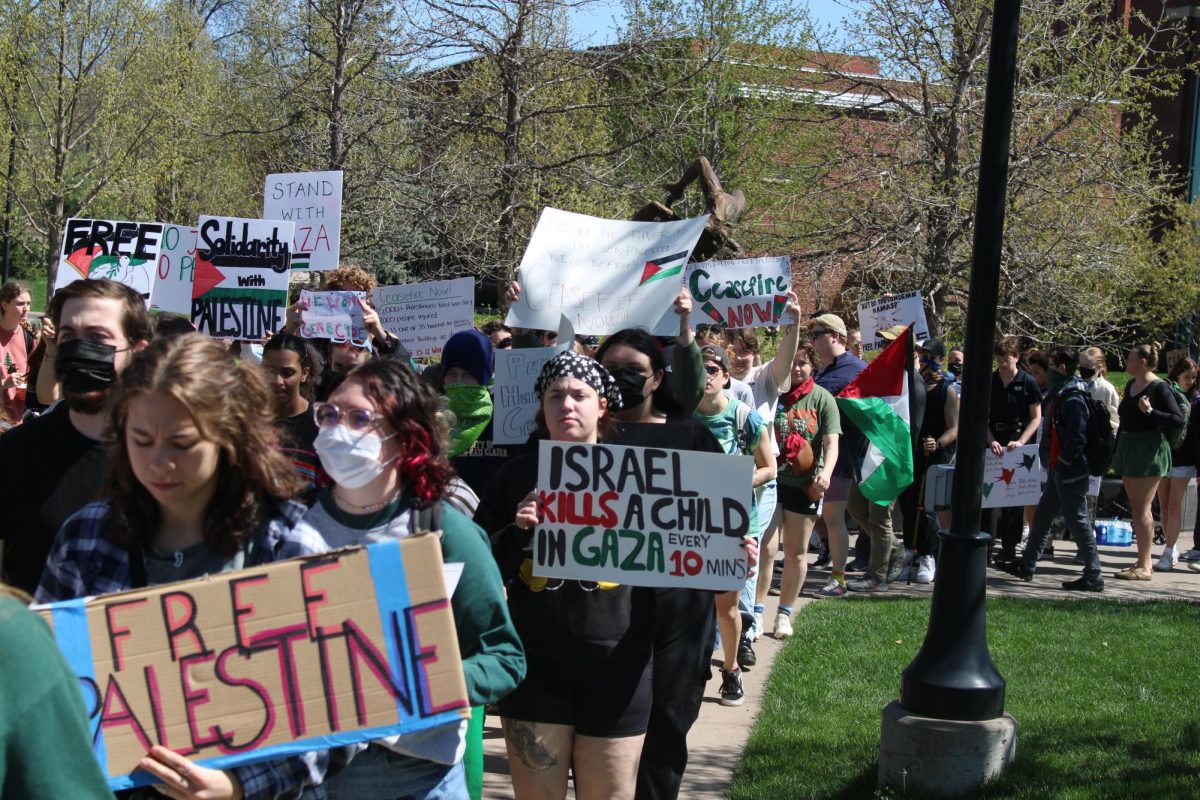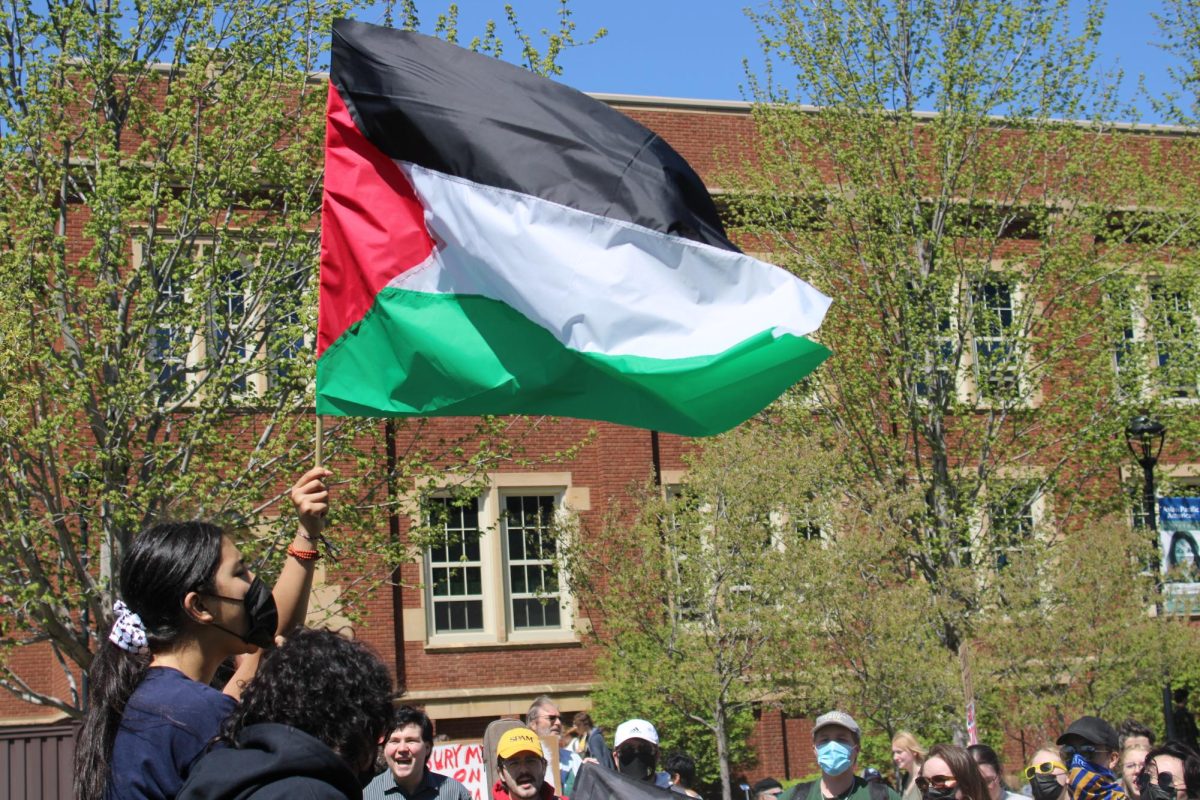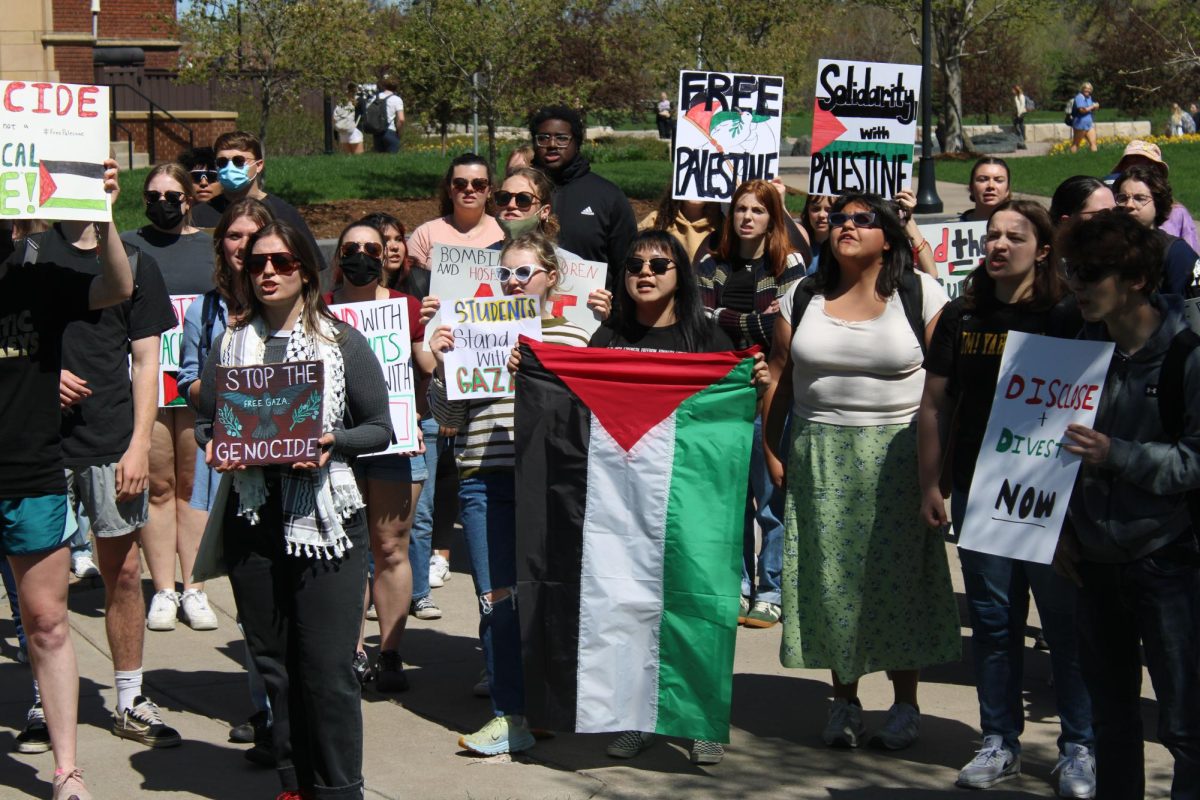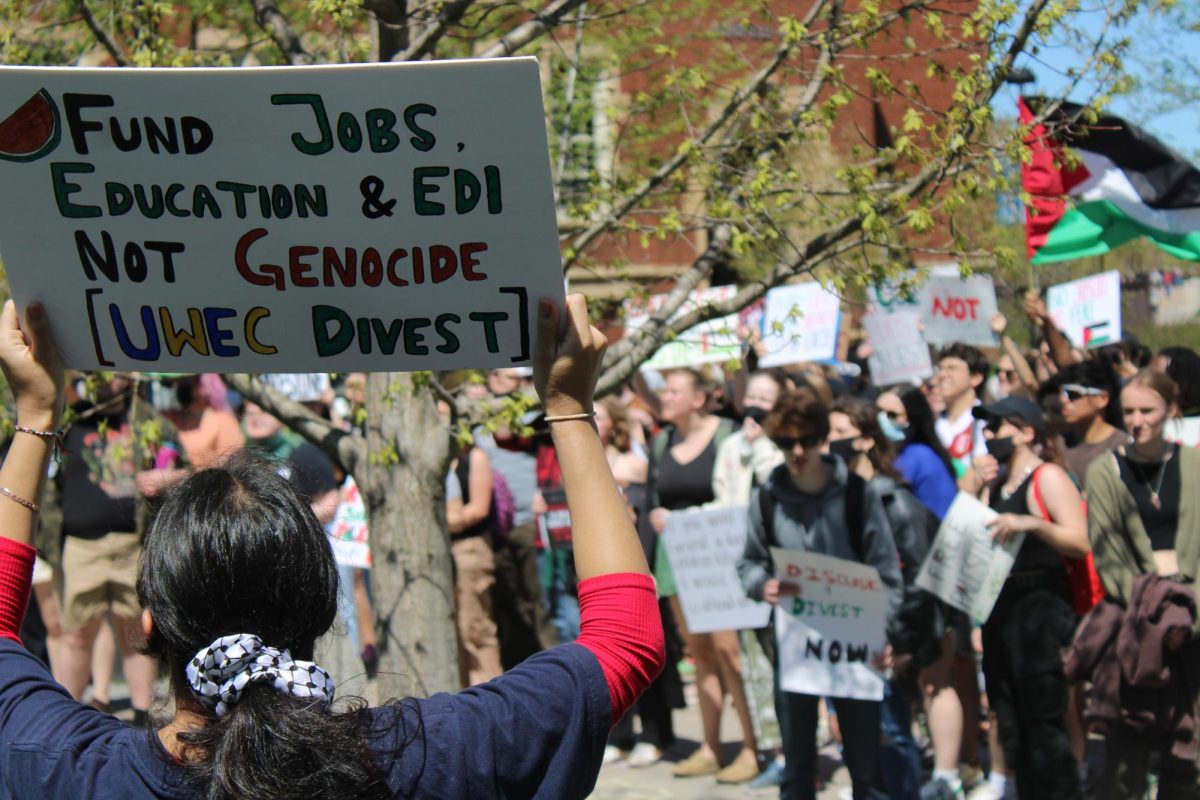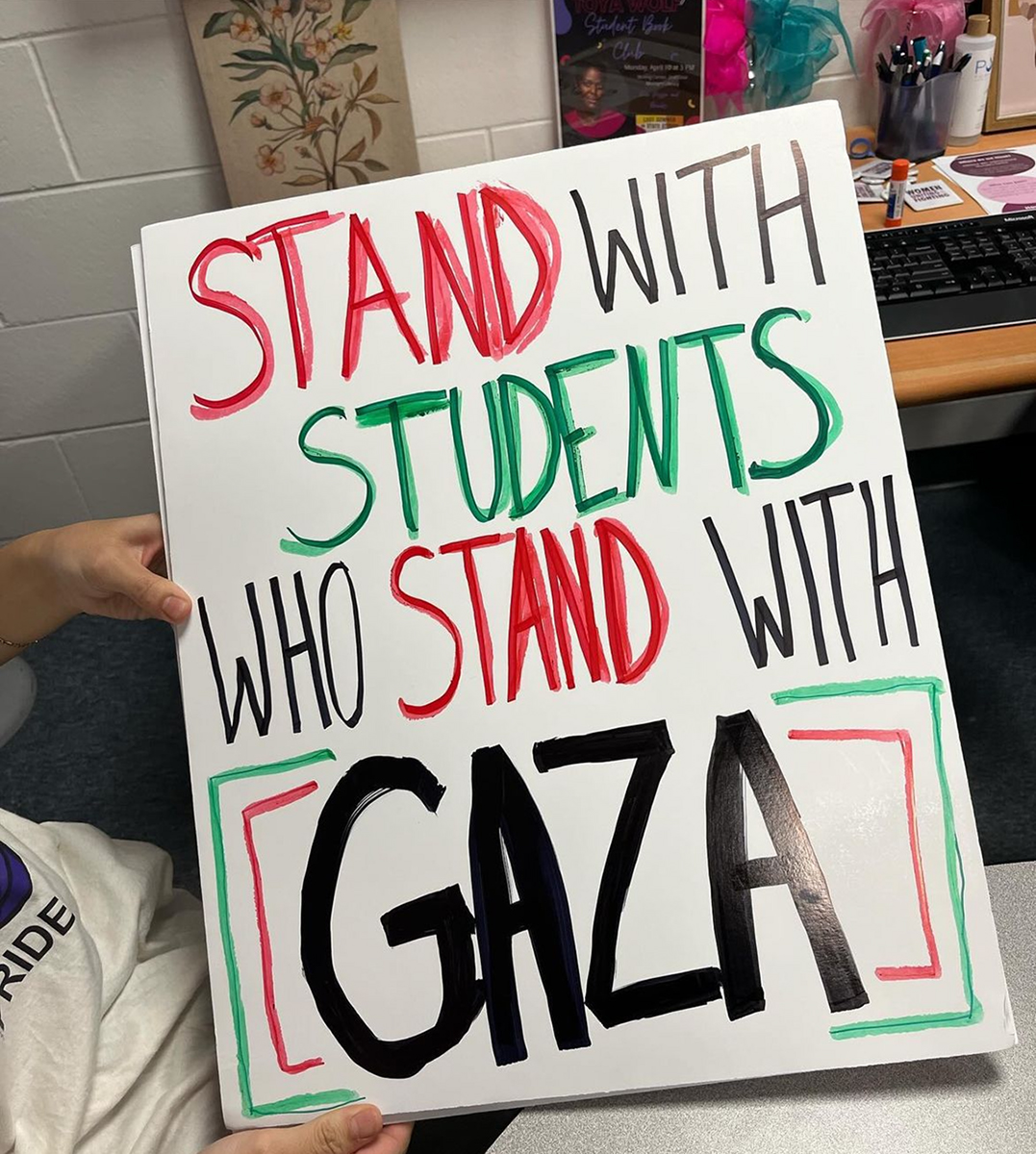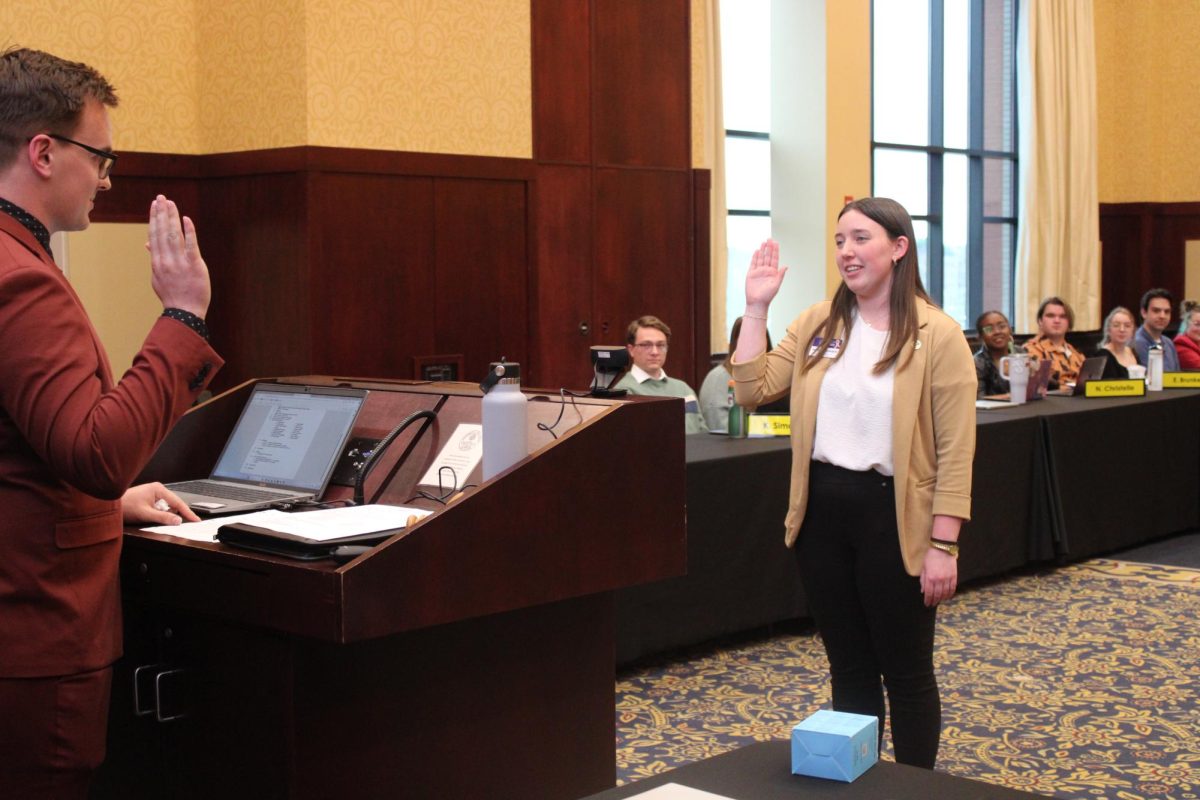Students took time out from listening to American politicians discuss Iraq on Wednesday to gain an international perspective on the issue.
Students from Latvia, Japan, Bulgaria, Mongolia, Serbia and India gathered in the Presidents Room of Davies Center to discuss the Bush policy of preemption, the war in Iraq and the presidential campaign in front of a standing-room-only crowd.
| “It was good to hear that my feelings were shared by rest of the world.” –Sam Court Senior |
Political science professor Steven Majstorovic facilitated the event and opened the discussion.
“We get a chance to be exposed to some international students who have come here to Eau Claire,” Majstorovic said.
In prepared statements by the international students, all but Aruintsetseg Davaasambuu, the Mongolian representative expressed disapproval of the invasion of Iraq, and all students said they disagreed with preemption.
“Overall I thought there was a definite feeling that the preemptive strike on Iraq was a mistake,” senior Sam Court said.
“I think this policy draws a very, very dangerous line in which you (United States) have the right to say what’s right and what’s wrong,” Girts Milgravis of Latvia said.
Others felt that preemption was a policy that would eventually have negative consequences in the world.
“It is really creating more enemies than it is defeating,” Aneliya Kuzmanova of Bulgaria said.
Some said they felt that by attacking Iraq and Afghanistan, yet allowing North Korea, with its nuclear weapons to avert invasion, the U.S. sent a scary message to the rest of the world.
Steven Gajic of Serbia said that, looking at the current state of world affairs, countries could say, “Why don’t I make weapons of mass destruction like North Korea so nobody will touch me.”
Aruintsetseg Davaasambuu of Mongolia expressed the lone supportive opinion of the war on the panel.
“I supported the war because no matter who the invader is and who the victim is, after the war, the Iraqis won’t have a dictator,” Davaasambuu said.
Despite the consensus that the war was a mistake and the assertion that the people of each panelist’s country widely disagreed with the war, some of the countries represented were members of the “coalition of the willing” that aided the United States in invading Iraq.
Latvia, Bulgaria, Japan and Mongolia were all members of the coalition.
Panelists from all four countries explained that they understood that their countries had to support the war in order to maintain a positive relationship with the United States. Milgravis and Kuzmanova both said that their countries had to join the United States in order to ensure inclusion in NATO’s expansion last spring.
“When you rely on someone you have to be careful what you say,” Kuzmanova said.
Milgravis agreed, “I understand logically why our government had to support the U.S., but I disagreed with the policy.”
Similarly, Davaasambuu said that the importance of American investment in Mongolia was too great to potentially offend the U.S. by disagreeing with it. Tamayo Yamanoue of Japan said that the Japanese people didn’t support the war, but some supported Japanese involvement to secure Japanese-American relations.
Most of the panelists said the preemptive war in Iraq had negative consequences on America’s image around the world.
“It is sad, but it’s true. (The war) has had an adverse effect on the world view of America,” Sandeep Bang of India said.
Many of the students who attended the roundtable said hearing the international students talk about the war affected their opinions.
“It (the roundtable) strengthened my opinion. I was against (the war) from the beginning,” Court said. “It was good to hear that my feelings were shared by the rest of the world.”

